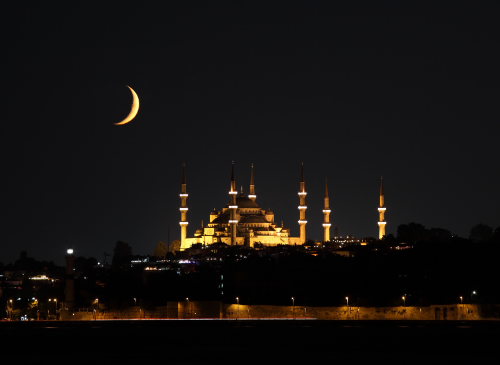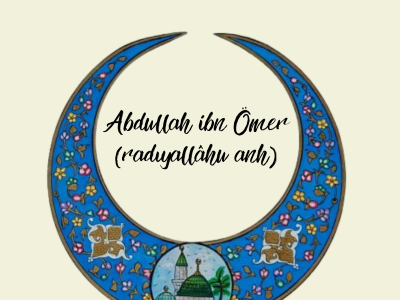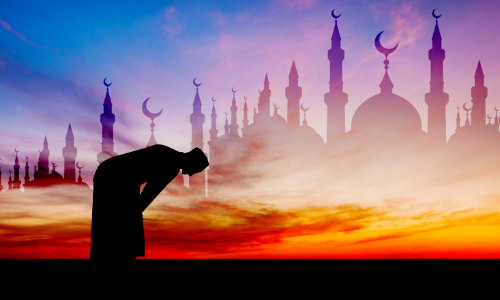Even though its departure is as swift as the wind, the arrival of Ramadan is as serene as the growth of a forest. It makes its presence felt gradually. As it approaches, it brings order to people, places, and even time itself. The crescent moon appears; days turn into golden wheat, and the calls to prayer into a silver scythe. Each day becomes a new harvest. There begins a calmness in everyone who makes room for Ramadan and finds a place within it. Souls quietly bow down. Time turns into a savored beauty.
I remember some elders who knew the taste of fasting would start preparing for Ramadan from the first day of Rajab, eagerly awaiting its arrival. Some would welcome Ramadan by fasting on specific days in Rajab and Sha’ban, setting up their harvest early. A strange and beautiful light would fall upon their faces. Mothers and grandmothers, in their floral dresses and shalwars, would get ready for Ramadan like preparing a garden. Fathers would work. Elders, with eyes reflecting many past times, would start conversations in the mosque courtyard or under the shade of an oleaster tree. Everyone spoke with the restraint of fasting, laughing with the mouth of fasting.
In our small town, the pre-iftar hustle became evident during Ramadan evenings, but as the call to prayer approached, even the birds seemed to fall silent. It was as if everything listened intently, waiting for the adhan. At home, elders who watched for iftar would assign a child outside to ensure the breaking of the fast was timely. They became the heralds of the adhan, unlocking the sealed lips. Drinking a sip of water with the adhan, it felt like giving life while swallowing, wondering if anyone pondered creation at that moment. However, the essence of life revolving around sustenance became more apparent in this month. It must be that those who increase their worship and draw closer to their Lord are given plenty, as our modest table would overflow. We would witness and give thanks for the embodiment of abundance.
When the minarets began to recite salutations, we would go to the Tarawih Prayers with neighborhood friends, completing the long prayers without boredom in our semi-child, semi-grown state of mind. To prevent the congregation from becoming weary, our imam would recite the Rahman surah, known for its short verses. The harmony and meaning of this surah have continued to affect me since then. Another thing that struck me in those days was the hymns recited after every four rak’ahs, which I particularly enjoyed. I later learned that this hymn was the Salat al-Ummiya, composed by the great Itri. Led by someone with a beautiful voice, we would sing Salat al-Ummiya with such passion, transporting each other to other worlds. The villagers, grinding through their daily chores, would seem to transform into saints with the joy derived from worship.
Entering the night tired, we would wake up to a sound long forgotten. Ramadan drummers would wake the houses, and lit windows would start to glow one after another. As the dawn approached, preparations would be made, followed by a poem, and then presented. Both the giver and the receiver would be happy. Then, a humble pre-dawn meal would be served. My mother always made noodles for sahur, which we would enjoy with apricot compote, keeping us full almost all day. When I think back to past Ramadans, I also return to the image of my mother in my mind, either by the stove or in front of a wood-fired oven, preparing pastries. Especially on the eve of Eid, she would fry a lot of “katmar” to distribute to neighbors. Fresh katmar with tea was delicious. My mother made Ramadan lovely with good food. Hence, whenever I smell baking dough, I am reminded of her.
Ramadan was fragrant with familiar yet distinct smells that enveloped and captivated us, a scent I believe was felt by all. This aroma, like silk softness kneaded into every fasting month, gives strong hints about Paradise to the human soul. It was like experiencing a Mediterranean climate in Central Anatolia. I believe this is the case everywhere in the world where fasting is observed.
Ramadan today is truly unique, marked by its enchanting fragrance, mosques brimming with devotees, believers uplifted by the joy of worship, and cities enveloped in tranquility. It is like a piece of heaven entrusted to us mortals; yet the color of mortality yellows its leaves. Leaving behind bright faces and sweet memories, and before we can fully savor it, it slips from our grasp like a beautiful book read before sleep, accompanied by a sweet festival.




